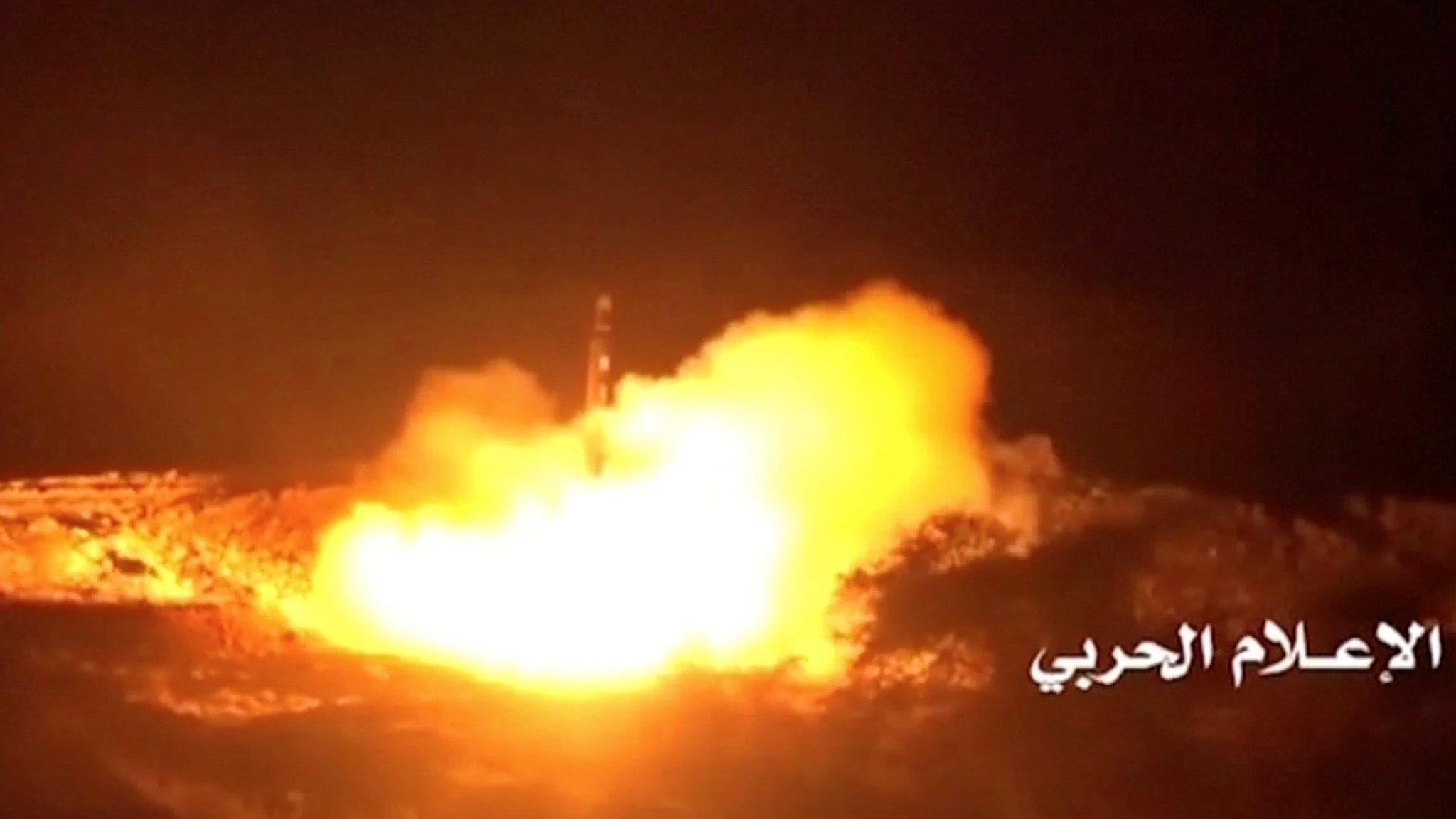Lebanon Hariri crisis: Tillerson warns against Saudi-Iran proxy war
- Published
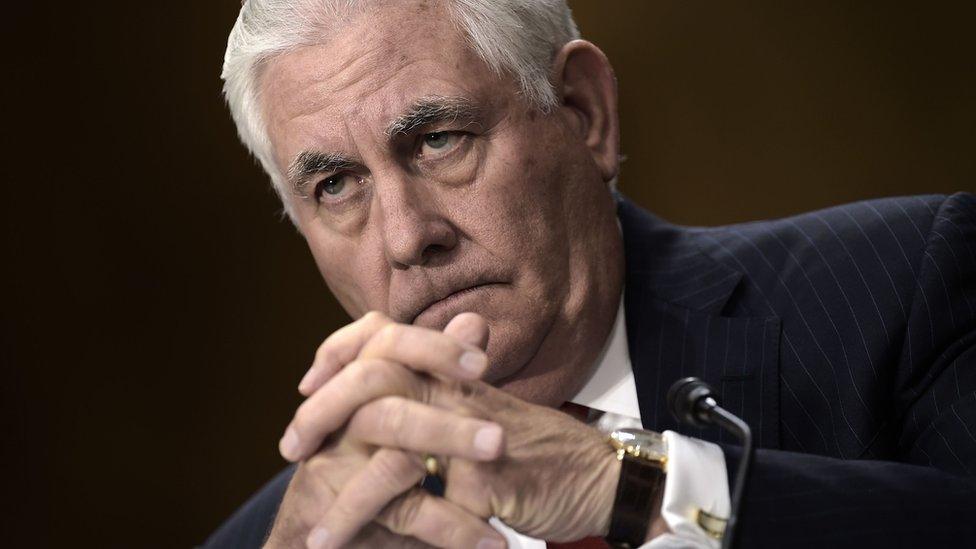
Rex Tillerson said the US supported Lebanon's government and right to sovereignty
US Secretary of State Rex Tillerson has warned other countries against using Lebanon for proxy conflicts, following a crisis triggered by the resignation of its prime minister, Saad Hariri.
Iran and its Lebanese ally, the militant Shia group Hezbollah, claim the Saudis detained Mr Hariri and forced his resignation.
Mr Tillerson said he had received assurances that Mr Hariri was free.
Mr Hariri resigned a week ago while in the Saudi capital, Riyadh.
"There is no legitimate place or role in Lebanon for any foreign forces, militias or armed elements other than the legitimate security forces of the Lebanese state," Mr Tillerson said in a statement.
"The United States strongly supports the sovereignty and independence of the Republic of Lebanon and of its political institutions," he added.
Mr Tillerson encouraged the prime minister to return to Lebanon and clarify the situation so the government could function, expressing concern about how the crisis might affect the stability of the fragile coalition.
What is US policy on Saudi-Lebanon crisis?
The delay in response from America's top diplomat - it took him six days to respond to the crisis - has renewed criticism that the US lacks a strategy for the crucial region.
Under the direction of Saudi Arabia's crown prince and heir to the throne Mohammed bin Salman, a new anti-corruption body last week detained 11 of the kingdom's princes, four sitting ministers and dozens of ex-ministers.
President Donald Trump tweeted on Tuesday to say he had "great confidence in King Salman and the Crown Prince of Saudi Arabia, they know exactly what they are doing."
Appearing to contradict the president, not for the first time, Mr Tillerson said on Friday: "It raises a few concerns until we see more clearly how these particular individuals are dealt with."
How are key Lebanese figures reacting to crisis?
Responding to Mr Hariri's resignation, the leader of Hezbollah on Friday accused Saudi Arabia of declaring war on his country.
Hassan Nasrallah said Saudi Arabia was holding Mr Hariri against his will. He also accused the Saudis of inciting Israel against Lebanon.
"In short, it is clear that Saudi Arabia and Saudi officials have declared war on Lebanon and on Hezbollah in Lebanon, but I have to say this is a war on Lebanon," Mr Nasrallah said.
Mr Hariri said in a TV broadcast from Riyadh on Saturday that he was stepping down because of an unspecified threat to his life. He also attacked Hezbollah and Iran.
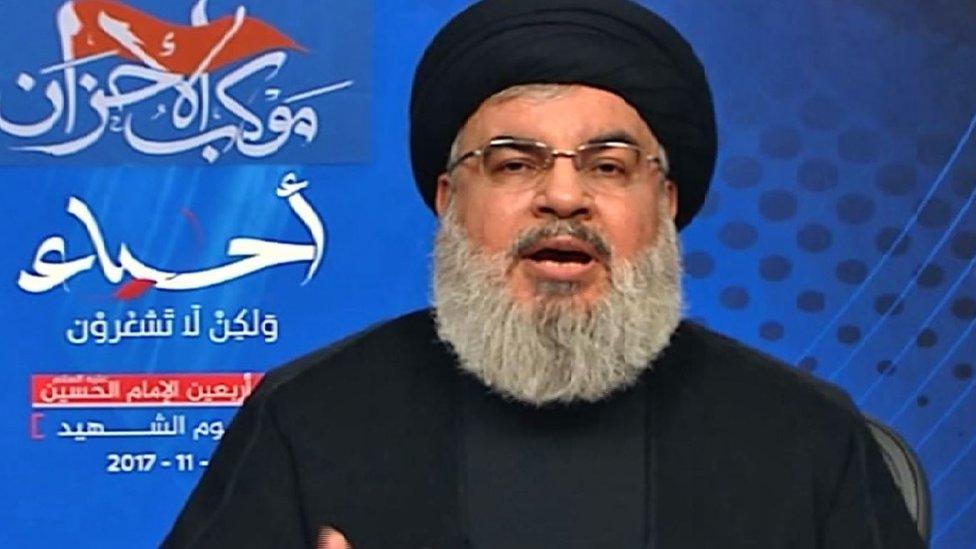
Mr Nasrallah said it was "beyond any doubt" that Mr Hariri had been forced out by the Saudis
However, Lebanese President Michel Aoun and other senior politicians have demanded his return, amid suspicions that he is being held by the Saudis under house arrest and forced to do their bidding.
Mr Aoun has not accepted Mr Hariri's resignation, and Mr Hariri has not spoken publicly since his resignation announcement.
Mr Nasrallah also accused Saudi Arabia of being prepared to pay "billions" to Israel for a military strike against Lebanon, describing this as the "most dangerous thing".
How has the international community reacted?
UN Secretary General Antonio Guterres warned that a new conflict in the region would have "devastating consequences".
On Thursday, French President Emmanuel Macron paid an unscheduled visit to Saudi Arabia, to emphasise to Saudi leaders the importance of stability in Lebanon.
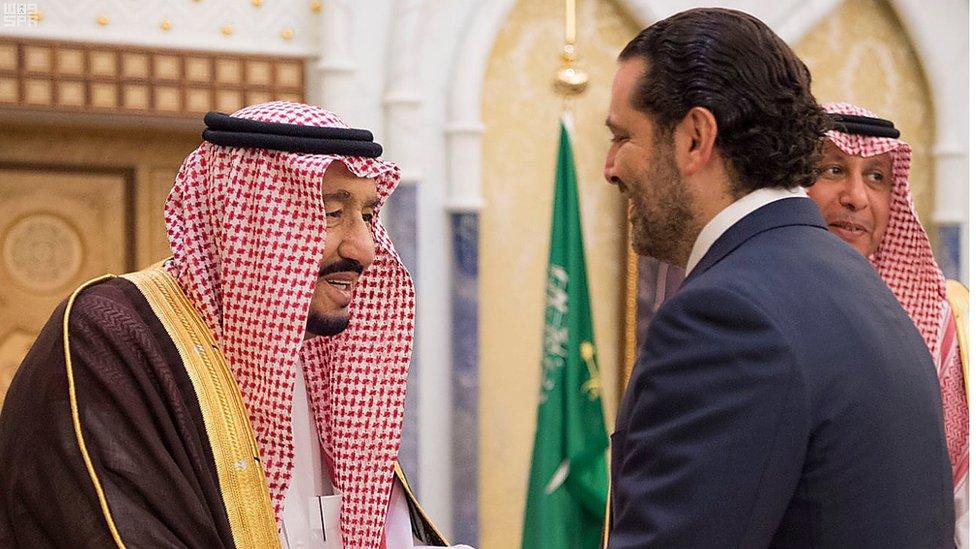
Mr Hariri (R) was seen meeting the Saudi king on Monday
France has historical ties with Lebanon, as its former colonial power before it gained independence during World War Two.
Earlier on Thursday, Saudi Arabia and its Gulf allies told their citizens in Lebanon to leave the country immediately.
The move came after Riyadh accused Iran of "direct military aggression", saying it supplied a missile which it says was fired by Hezbollah at Riyadh from Yemen on Saturday.
Iran has dismissed the Saudi allegations as "false and dangerous".
- Published10 November 2017
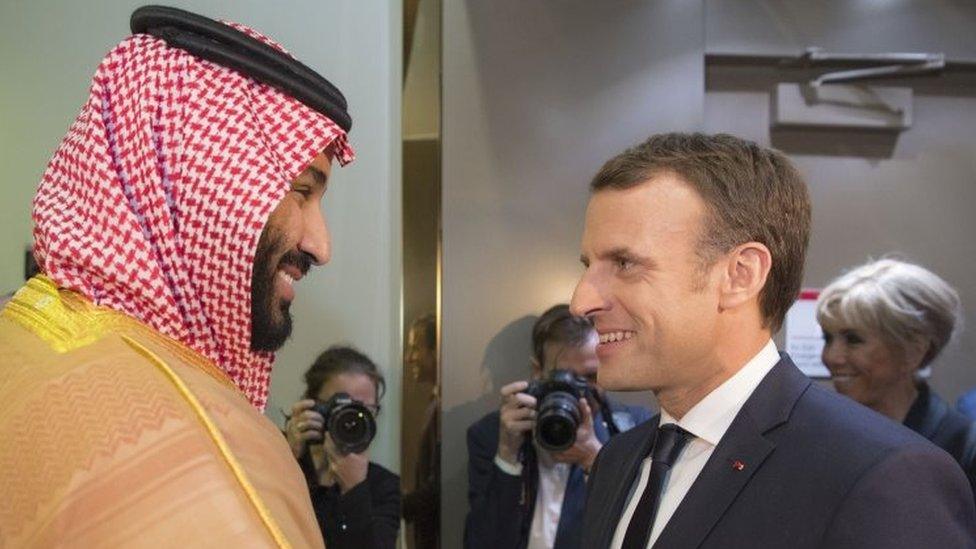
- Published10 November 2017
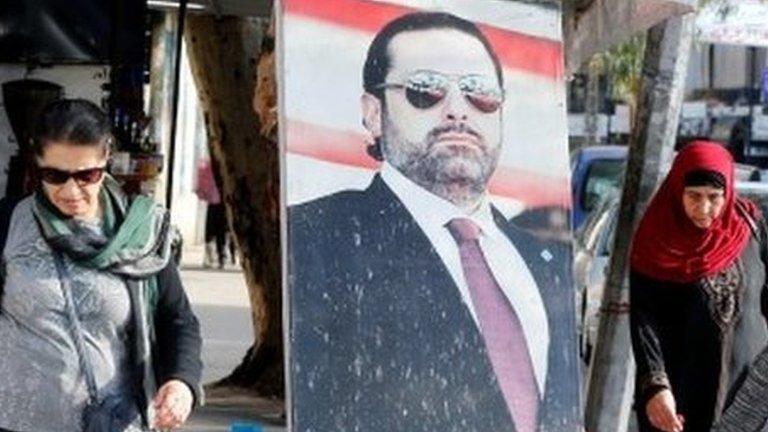
- Published5 November 2017
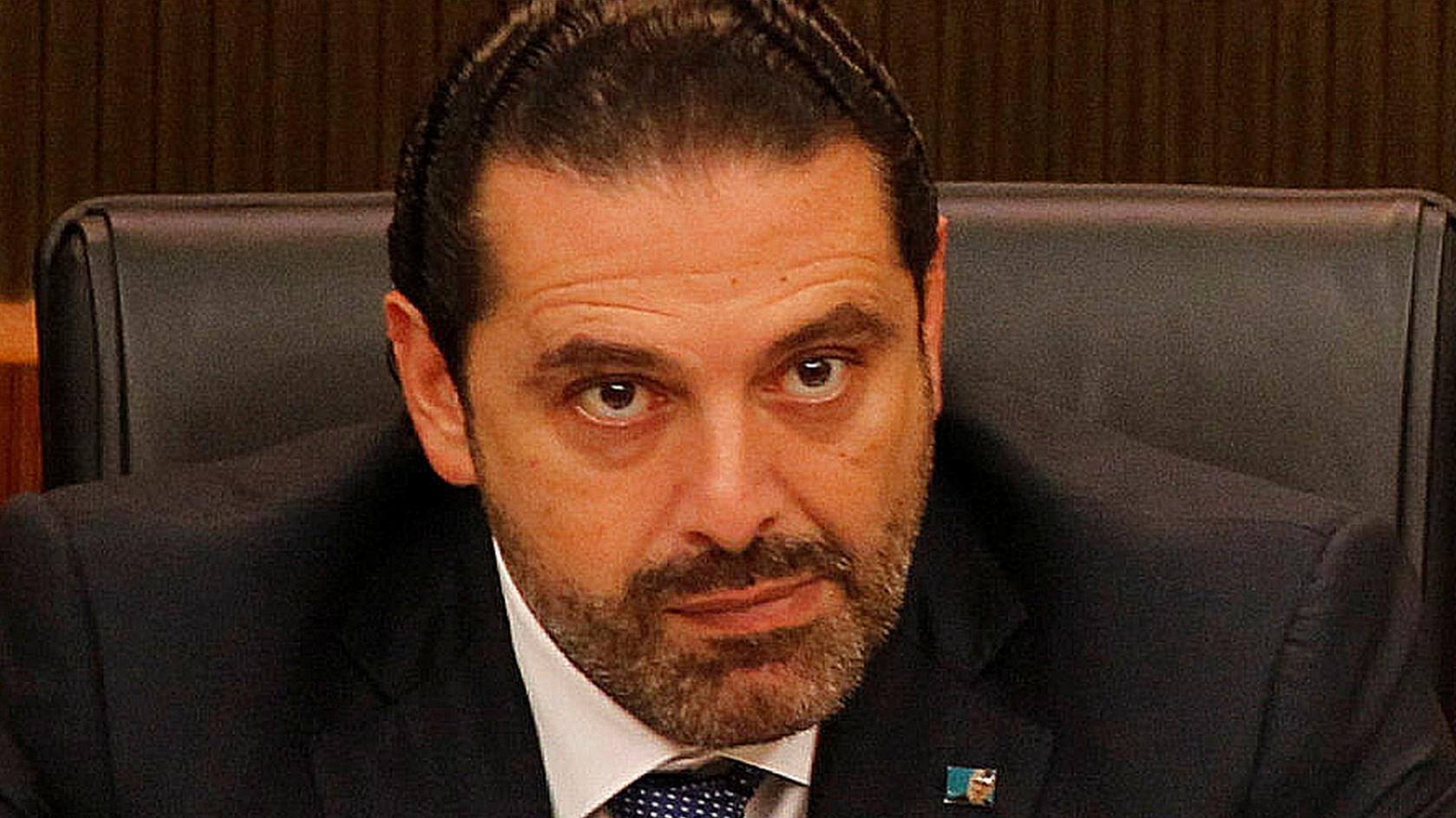
- Published4 November 2017
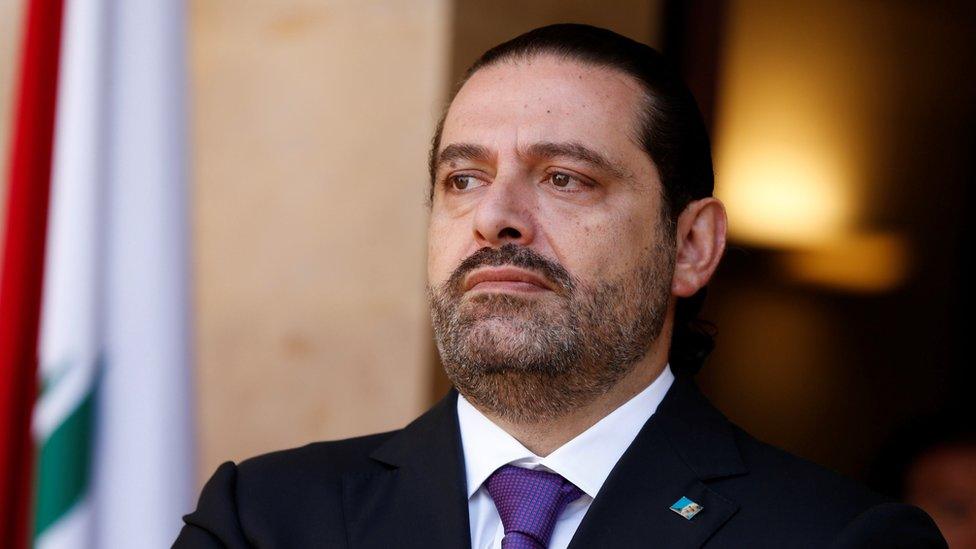
- Published7 November 2017
